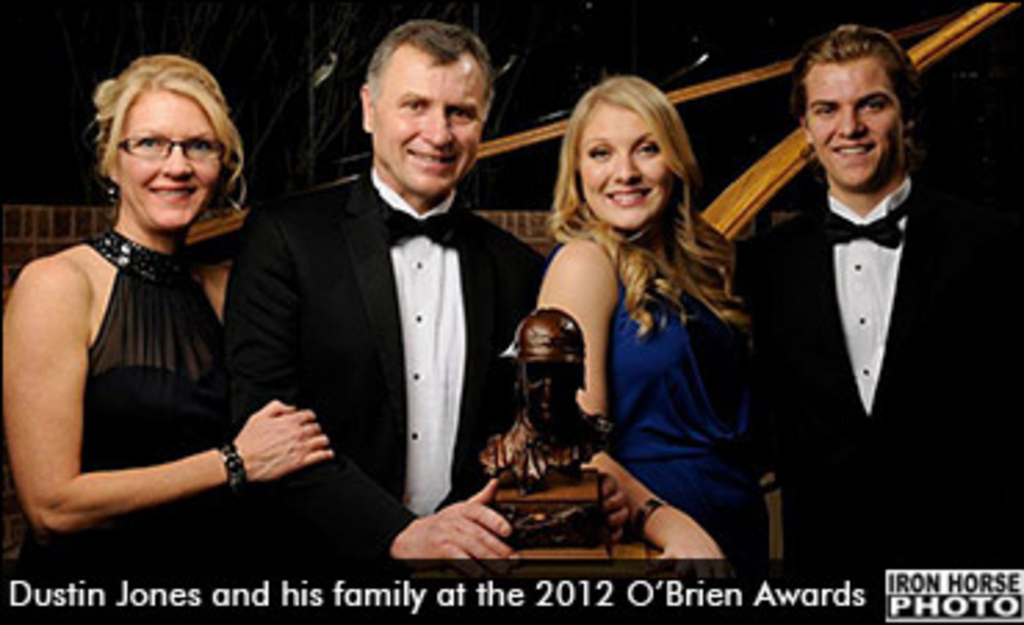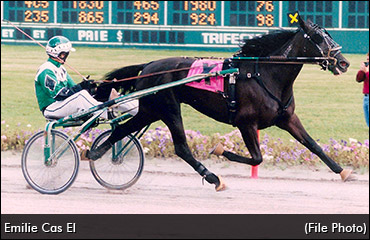
Trainer Dustin Jones said he owes more than his career to Quenouille Ideale.
“She was the filly that bought my farm for me in 1984 in Quebec. I made my living on that farm for 27 years until we moved (to Ontario) in 2011,” said Jones.
The trainer was just 22 in the autumn of 1983 when he purchased Quenouille Ideale as a yearling for $1,700.
“She was small and I guess that’s why I got her,” Jones said of the daughter of Brets Rocket out of Moon Bayama.
“She was the first foal of a mare that barely raced. The reason I bought her was because Brets Rocket was a half-brother to Fast Clip. I remember Bill Wellwood had a couple of Fast Clips when I worked for Dave Wall. When I saw Brets Rocket I went and looked at her.
“(Quenouille Ideale) had perfect conformation. She didn’t wear any boots.”
The filly earned $126,732 at two in 1984 with a record of 8-3-2 in 16 starts.
“She was a tiny little filly. She probably wore a 49-inch hopple as a two-year-old. I remember once I raced her in Jonquière, and I remember I got beat with her in the mud. The filly that beat me was Semalu Damour. It was a filly of Niatross. She was Benôit Côté’s filly. She was filly of the year in Canada, I think. She was good,” Jones said.
Quenouille Ideale raced three seasons and earned $174,632 with a record of 16-8-7 in 71 starts. Jones said Quenouille Ideale didn’t come back as good at three.
“I had problems with her probably before I knew what tying up was. But she was a big part of my career,” said Jones who has won more than 1,000 races and over $18 million and trained 1994 Canadian Horse of the Year Emilie Cas El, who he named as the other horse that changed his life.
 “I had trained different trotters, Quebec-bred trotters, and never had anything that was so natural as she was when I broke (Emilie Cas El),” Jones said. “She could go barefoot. Right off, I said, ‘This filly’s a natural.’ I didn’t know how good they would be, but that was the best trotter that I had ever trained at the time when I broke her. I just couldn’t believe how good she was.
“I had trained different trotters, Quebec-bred trotters, and never had anything that was so natural as she was when I broke (Emilie Cas El),” Jones said. “She could go barefoot. Right off, I said, ‘This filly’s a natural.’ I didn’t know how good they would be, but that was the best trotter that I had ever trained at the time when I broke her. I just couldn’t believe how good she was.
“As you’re racing them, you don’t really appreciate it until you’re onto something else. It’s like everybody that has a good horse, you appreciate it, but you don’t have time to really appreciate it because, with the way the racing goes, you always are racing and each race goes to another race… But, they were all big parts (of my career).”
Though he now lives and works in Ontario, Jones said he still owns the farm that Quenouille Ideale bought for him.
“It’s still mine. We have it for sale, but it’s very hard to sell a place like that with the industry like it is in Quebec. If we don’t sell it, maybe we’ll end up retiring there. It would be nice to sell it, though,” he said, laughing.
(Courtesy Ontario Racing)

